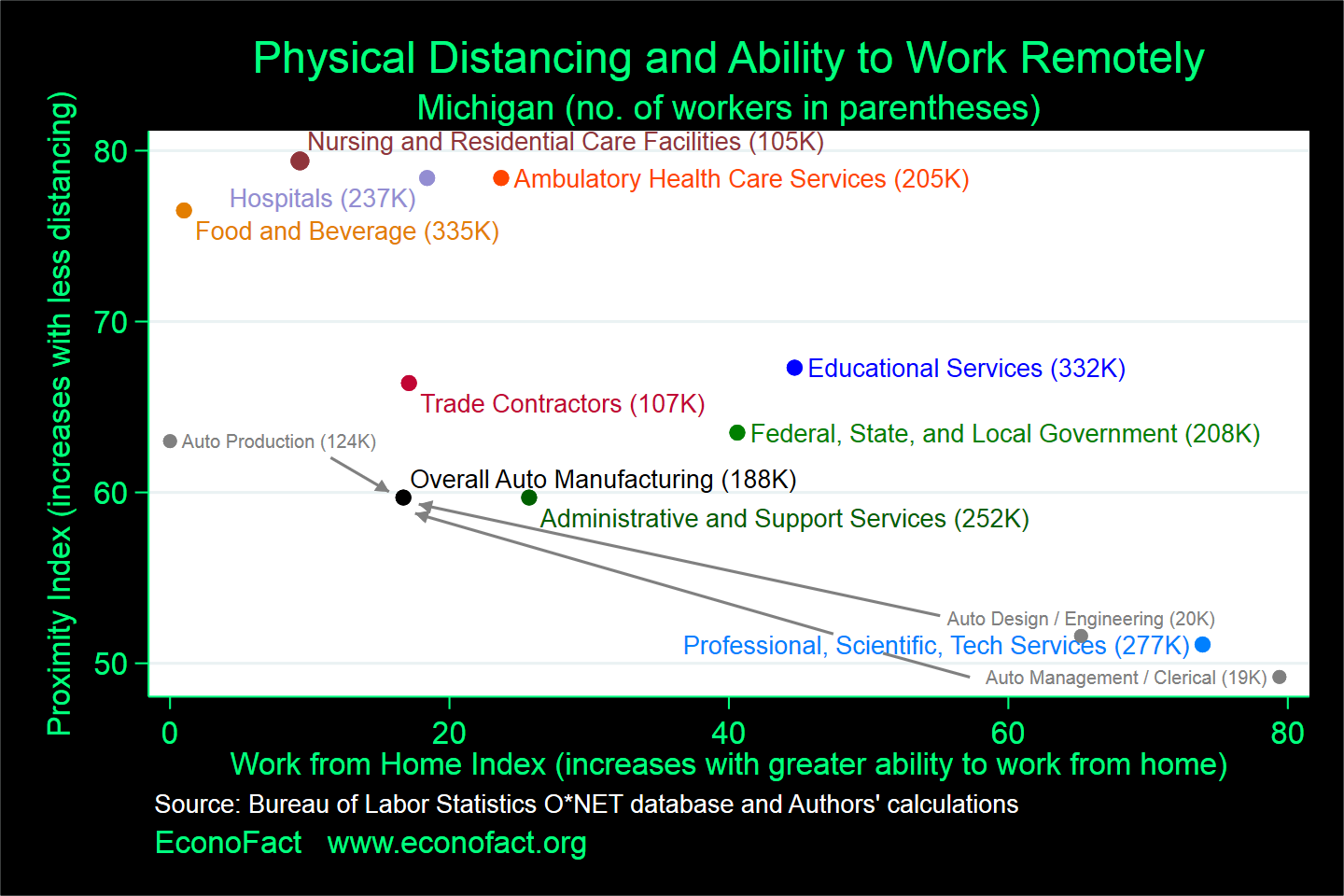Wayne State Study Offers Guide to Reopening Businesses Safely
As states weigh economic and health concerns, researchers in Detroit say prioritizing low-contact businesses could strike the right balance.

Michigan Governor Gretchen Whitmer has introduced a 6-step plan to re-start businesses that have been shut down during the coronavirus pandemic. It aims to balance the desire to revive the economy against the need to prevent a resurgence of COVID-19. Read the plan here.
A new study says states can do both if the prioritize industries where workers can keep their distance from each other or work remotely.
“Priority should go to businesses that don’t require as much personal protective equipment, since it is scarce.” — Prof. Shooshan Danagoulian
Wayne State University researchers Shooshan Danagoulian, Zhe Zhu and Philip D. Levy wrote the report. Danagoulian, an assistant professor of economics, says professional services such as accounting are best-suited to resume safe operation. Read the report here.
“Accountants work in separate offices, which precludes the spread of the virus, but they can also do their work from home fairly effectively,” Danagoulian says.

By contrast, factory workers can’t do their jobs from home. But manufacturers can take steps to help workers maintain their distance. Whitmer’s executive orders allow manufacturing to resume on May 11. General Motors, Ford and Fiat Chrysler all plan to resume auto production in North America on May 18. The United Auto Workers union says all three car companies will take steps to protect workers’ health as they return to their plants.
Click on the player to hear Prof. Danagoulian’s conversation with WDET’s Pat Batcheller
“We suggest giving priority to industries where — if people can’t work from home — they can operate effectively while minimizing the spread of the virus,” Danagoulian says. “It would a provide a bigger boost to the economy should production resume in those industries.”
The risks

Danagoulian says industries that emphasize distancing and working from home are less likely to need personal protective equipment, supplies of which are limited.
“Priority should go to businesses that don’t require as much PPE, since it is scarce,” Danagoulian says.
Danagoulian, Zhe and Levy also found:
- Industries that cannot operate from home have a higher likelihood of layoffs.
- Widespread layoffs and furloughs can have a devastating impact on a local economy.
- If people who recover from COVID-19 are immune from getting it again, they could go back to work sooner.
- A return of COVID-19 this winter could cause economic disruption through 2022.
- Prioritizing industries now would reduce the economic fallout of future distancing measures.
Danagoulian says information about the novel coronavirus and COVID-19 are constantly changing, and businesses need to consider that and stay updated as they assess whether it’s safe to reopen.
“I think every industry is going to come up with some kind of contingency plan on how to operate if it comes back in the winter,” Danagoulian says. “I would hope that by the time we get to December, businesses are going to work out plans to prevent complete closures.”
